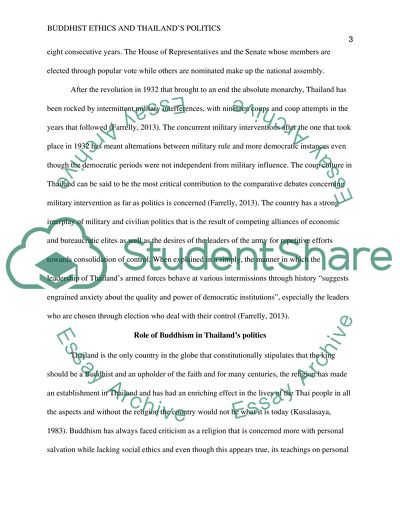Cite this document
(“Buddhist Ethics and Thailands Politics Essay Example | Topics and Well Written Essays - 1250 words”, n.d.)
Retrieved de https://studentshare.org/religion-and-theology/1652483-buddhist-ethics-and-thailands-politics
Retrieved de https://studentshare.org/religion-and-theology/1652483-buddhist-ethics-and-thailands-politics
(Buddhist Ethics and Thailands Politics Essay Example | Topics and Well Written Essays - 1250 Words)
https://studentshare.org/religion-and-theology/1652483-buddhist-ethics-and-thailands-politics.
https://studentshare.org/religion-and-theology/1652483-buddhist-ethics-and-thailands-politics.
“Buddhist Ethics and Thailands Politics Essay Example | Topics and Well Written Essays - 1250 Words”, n.d. https://studentshare.org/religion-and-theology/1652483-buddhist-ethics-and-thailands-politics.


